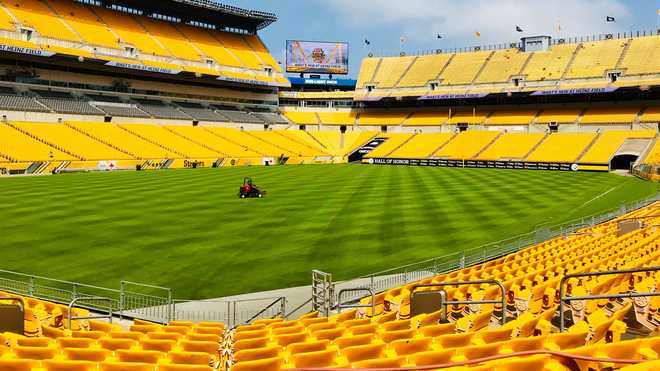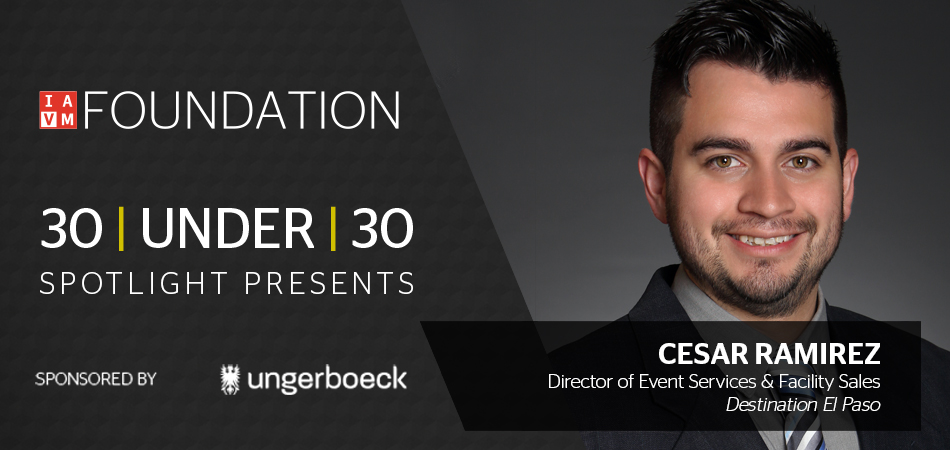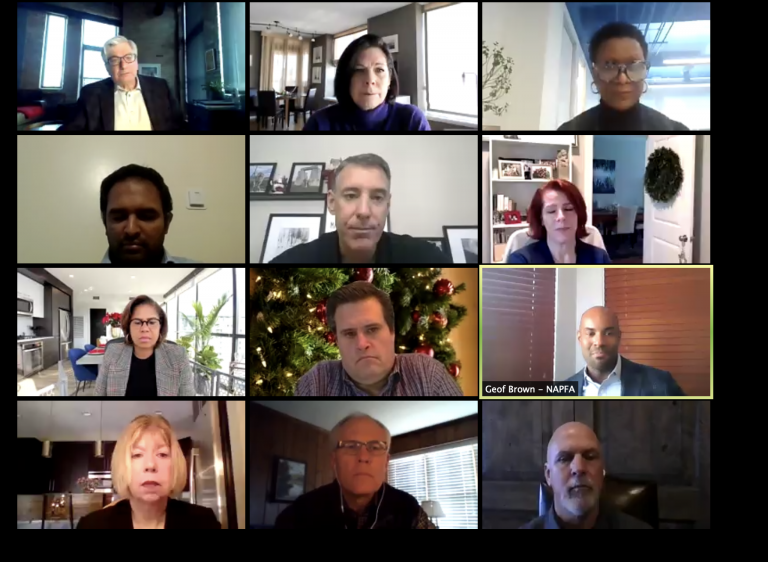Time to Catch Up on a Naming Rights Deal, Pittsburg Steelers Stay With Heinz Field
The home stadium of the Pittsburgh Steelers will continue to be known as Heinz Field after the NFL team signed a one-year extension to its naming-rights partnership with food production company Kraft Heinz.
The new agreement will run until the end of 2021. Heinz has sponsored the stadium since it opened in 2001  and its deal with the Steelers had been due to expire at the end of the current NFL season.
and its deal with the Steelers had been due to expire at the end of the current NFL season.
Financial terms of the new deal were not disclosed. The original agreement was worth a reported $57 million.
“Over the years, the partnership has been a win-win for the Steelers – one of the NFL’s most storied and popular teams – and for Kraft Heinz, Kraft Heinz Chief Executive Miguel Patricio said in a statement. “Both the Steelers and the Heinz brand are synonymous with Pittsburgh.”
Heinz Field welcomed a limited number of fans to a handful of games earlier in the season before restrictions were put in place starting with the game against Washington Football Team on December 6.
The Steelers had been welcoming around 5,500 fans until that point but new orders from Pennsylvania Governor Tom Wolf forced the team to restrict access to family and friends of the team.
Heinz Field has a capacity of around 68,400 and also serves as the home of the University of Pittsburgh’s American football team. The stadium has also staged NHL ice hockey games and music concerts over the years.
30|UNDER|30 Spotlight: Cesar Ramirez

Director of Event Services & Facility Sales, Destination El Paso
Cesar Ramirez, is currently the Director of Event Services & Facility Sales at Destination El Paso in El Paso Texas. His interest in the industry came through a love for music and live shows. After graduating from UTEP with a Bachelors in Commercial Music and then his Masters of Business Administration in 2017, he was fortunate enough to begin his journey with Destination El Paso which led him to my current role. He looks forward to many more opportunities within the industry that will allow him to continue to learn and grow as an industry professional.
“When I received my notice, I was very happy and excited, not only due to the fact that I felt a huge sense of accomplishment, but also it was good news amongst all the bad. After all the bad news through the current situation, it was nice to hear something positive and know there was still something to look forward to and be proud of.”
Join your Foundation in congratulating Cesar on being honored as one of the 30|UNDER|30 Class of 2020 and don’t forget to come back each Thursday as we spotlight another honoree!
Cliff Wallace, CVE, Adds JMIC Unity Award to List of Worthy Recognitions
By R.V. Baugus and Joint Meetings Industry Council
Cliff Wallace, CVE, added another deserved recognition recently when he was selected to receive the 2020 Unity Award from the Joint Meetings Industry Council (JMIC). Wallace was formally presented with the award December 10 as part of the IBTM World awards program this year taking place online by Kai Hattendorf, President of the Joint Meetings Industry Council (JMIC).
“In an industry that has been evolving as quickly as ours the importance of long-standing industry leaders,  advocates and role-models cannot be underestimated,” Hattendorf said. “This year’s Unity Award winner exemplifies the concept of lifetime achievement, not only through his organizational affiliations but as a pioneer, educator and mentor for generations of industry participants.
advocates and role-models cannot be underestimated,” Hattendorf said. “This year’s Unity Award winner exemplifies the concept of lifetime achievement, not only through his organizational affiliations but as a pioneer, educator and mentor for generations of industry participants.
“At the same time, he played a huge role in introducing the industry and the principles it stands for into new regions at a critical point in their development. While each year we are presented with a challenge in selecting just one recipient for the Unity Award I can honestly say that this recipient is particularly deserving for both the length and breadth of his contributions.”
Wallace has had many years of service in the development, design, construction, project planning, managing, operating and day-to-day business of public assembly venue management and has elevated those venues to a respected presence in the communities in which they are located. At the same time, he has been a senior leader of numerous industry associations and a highly respected instructor / mentor in a wide range of key industry training programs. He has won a number of global awards for his work, and continues to contribute well into his semi-retirement as an industry ambassador and advisor.
The Unity Award is made annually to an individual who represents the best qualities of Meetings Industry Leadership and who has devoted major efforts to creating stronger relationships and a greater cohesion for the industry. Award criteria evaluate industry leadership and initiative both in a candidate’s own professional conduct and the efforts they put into industry-building through association, education and professional development activities.
To see the video of the presentation and Cliff’s acceptance of the award, click here.
Previous Unity Award Winners
2019 Joachim König | Managing Director, Hannover Congress Center
2018 Karen Bolinger | CEO, Melbourne Convention Bureau
2017 Ray Bloom | Chairman, IMEX Group
2016 Anita Pires | Director, Pires & Associados Assessoria Ltda
2015 David Peckinpaugh | President, Maritz Travel Group
2014 Tom Hulton | Director of International Relations, IMEX Group
2013 Michael Hirst | Chairman of the Business Visits & Events Partnership in the UK
2012 Airy Garrigosa | Director Barcelona Convention Bureau
2011 Luc Maene | Director General, International Fertilizer Industry Association and President, Society of Association Executives
2010 Christian Mutschlechner | Vienna Convention Bureau
2009 Barbara Maple
2008 Hans Friis | Brahler ICS AG
2007 Roger Tondeur | President and Founder MCI Group
2006 Luca Favetta | SAP
2005 Laure Mouton | Executive Director, Palais des Congrès de Paris
2004 Olivier Lépine | Director, Biarritz Tourisme
2003 Jorge Castex | Managing Director, ICS International Conference Services
Trade Show Executive Panel Shares 8 Takeaways For the Future of Live Events
By Sue Pelletier
At a recent online town hall, the Association Forum and the Meetings Mean Business Coalition (MMBC) pulled together an all-star lineup of industry powerhouses to talk about what the future of live events will look like once we get back to meeting in person post-COVID-19.
The events industry is one of many that have been “truly shaken to the core,” said town hall moderator and Association Forum President and CEO Michelle Mason. That’s why, she added, “It’s important for us to have a conversation on what’s happening in our world,” beginning with a quick recap by Caesars Entertainment Chief Sales Officer Michael Massari on MMBC’s focus in recent days, which has been “on securing relief for the industry and, more importantly, gaining permission to operate meetings and events.”
Here are eight top takeaways from the discussion:
1. Live events are still happening now — and there’s much we can learn from the safety protocols already in  place. John Rissi, Senior Vice President, Operations, PSAV, reminded the panel and the audience that in-person events actually are still happening now, though they are generally small in scope. “From August to November, we executed 16,000 face-to-face meetings,” he said, adding that probably 60% of those were for fewer than 25 people. Citing PSAV’s Meet Safe program, he said, “If we can address the number one concern about how you do it safely, people do want to meet face to face.”
place. John Rissi, Senior Vice President, Operations, PSAV, reminded the panel and the audience that in-person events actually are still happening now, though they are generally small in scope. “From August to November, we executed 16,000 face-to-face meetings,” he said, adding that probably 60% of those were for fewer than 25 people. Citing PSAV’s Meet Safe program, he said, “If we can address the number one concern about how you do it safely, people do want to meet face to face.”
2. Live events will be back — but maybe not until Q3 2021. “Nothing excites us more than the prospect of meeting physically in person again, but that’s going to be a while” due to the timing of the vaccine rollout, said Paul Pomerantz, CEO, American Society of Anesthesiologists. Like other associations, his shifted to a virtual format for its 2020 fall annual meeting. He anticipates that early 2021 meetings will also be virtual, with a slow emergence of smaller meetings first, then larger in-person events in the second half of 2021 and into 2022.
3. When they do come back, in-person events may be different from what they were pre-pandemic. While his organization’s fall 2021 meeting likely will be able to go on as an in-person event, it may be “not at the size we’re accustomed to,” said Pomerantz. Having learned from experience in going virtual just how much that can expand a meeting’s reach, especially internationally, look for future events to contain a hybrid component, panelists said. Not to worry, including a virtual component should only increase the attractiveness of in-person events, he added. “They will have multiple pathways for the education, but the real opportunities of networking, connecting with people and building their careers is going to happen at the live event.” Massari added, “We should embrace hybrid because it broadens the tent. It’s a great funnel for in-person events.”
4. Hybrid events aren’t easy. As one panelist said of a recent virtual event her organization held, “It was heavy, heavy lifting.” Staff has to learn new skills and master new technologies, go outside their comfort zones, and put in a lot more hours. Fine added that the two virtual events his organization has held recently “were so much more work than we have done in person — and without a lot reward of seeing our members enjoy the experience and celebrating together. We’ve made a lot of advances, but it’s been quite the ride.” Pre-recording at least some sessions can help, as can thinking about making two totally separate educational tracks, one for on-site and another for online.
5. Online trade shows still need some work. “Our exhibits at the virtual event were the only aspect that was unsuccessful,” said one panelist. “It was a very vibrant meeting, but nobody went to the exhibit hall.” What did work was to have exhibitors sponsor sessions.
6. What to charge for online events? One important issue to hash out is pricing for the virtual component, panelists agreed. While many made their online events free in 2020, that won’t make sense moving forward. “Now is the time for us to begin to really think about how our entire business can shift. What is commoditized, and what is really valuable?” said Greg Fine, CEO, CCIM Institute. One panelist proposed charging the same for the online sessions as for the in-person education.
7. Flexibility will be key. Associations, which tend to book years in advance, have to figure out new ways to plan appropriately, said Betsi Roach, Executive Director, Corporate Legal Operations Consortium. The assumption when the meeting was booked was that the audience would only grow, and that may no longer be the case. “How do you start to readjust those expectations in a way that keeps both of us whole and also lets us plan effectively for what the meeting will look like now?” she asked. Not only will the audience likely be smaller, but will social distancing still be an expectation, and how will that affect how the meeting is structured? “There is going to be really critical need to address existing agreements in a way that allows those changes to happen,” she said. Partners will need to work with association execs to be flexible enough to accommodate changing conditions, which also could include attendees’ corporate travel bans.We need to do away with the silliness of 2020, where each side ended up playing a game of chicken to see who would cancel first, with the association having to pretend the event is going to happen up until the last minute to avoid cancellation liability. Fine reminded that hotels also are in a tough situation, especially those with mortgages coming due — and cities are hurting due to the slow-to-a-trickle hotel tax revenues the pandemic has caused. Flexibility, transparency and communication on both sides are going to be essential moving forward, panelists agreed.
8. Plan for every possible contingency. “As leaders, you need to plan for every contingency, and that’s exhausting,” said Greg Heidrich, Executive Director, Society of Actuaries. “We’re also still trying to run our businesses and keep our staff safe and keep our staff and our own morale up. But if you don’t actually game out every possible scenario, then you’re going to be reacting. And we’ve got to get back to being proactive.”
Sue Pelletier is Senior Editor with Trade Show Executive.
Buffalo Bills Thrilled to Have Fans For First Time This Season When Playoffs Start
By Jourdon LaBarber
Terry Pegula offered a message to Buffalo Bills fans following Governor Andrew Cuomo’s announcement that a limited number of fans will be allowed into Bills Stadium for Wild Card weekend.
“Remember, our objective here is to support our team in as many ways as we can,” the Bills owner said. “And I ask them to be safe, be smart, and most importantly be loud.”
New York State announced Wednesday that 6,772 fans will be permitted into the stadium for the Bills’ first home playoff  game since 1995, which will be played on either Jan. 9 or 10. Of that capacity, 6,200 tickets will be available for purchase to Bill Season Ticket Members who opted in earlier this season. (The remaining 572 entries will go toward NFL commitments.)
game since 1995, which will be played on either Jan. 9 or 10. Of that capacity, 6,200 tickets will be available for purchase to Bill Season Ticket Members who opted in earlier this season. (The remaining 572 entries will go toward NFL commitments.)
Season Ticket Members will be notified via email based on seniority with set times to purchase tickets. Club Season Ticket Members will receive their email on Thursday, Dec. 31; Non-Club Season Ticket Members will receive theirs Friday, Jan. 1.
During the press conference hosted by Governor Cuomo, Terry and fellow Bills owner Kim Pegula emphasized the importance of fans being in the building to support the players while also abiding by safety precautions to ensure that New York State will once again grant permission for fans at a potential divisional round game at Bills Stadium.
Precautions taken to ensure the safety of the community include mandatory testing for all who enter the building within 72 hours of the game (which will be conducted by BioReference Laboratories at Bills Stadium), staggered entry times, cashless transactions, mandatory mask wearing, and no tailgating.
“We know that the fans have been waiting 25 years to be able to attend a playoff game and we are so excited to be able to allow the limited amount of fans that we can,” Kim Pegula said. “I want to just say that we are so hopeful that there will be many more games that all fans can attend. For us to do that … we all need to be safe starting today even beyond the game.
“… We want to just encourage everyone out there, all our fans that we just need to do our part. Wear your mask, being compliant to CDC guidelines, social distancing. We all know what needs to be done, we just we all need to do our part to get it done so that we can have everyone back in our stadium soon.”
Jourdon LaBarber is a Contributing Correspondent for Bills Insider.
Do you want to receive a Front Row News weekly digest?
Categories
- Allied (856)
- Architecture (147)
- Arenas (744)
- Career (890)
- Convention Centers (889)
- Education (608)
- Events (1,528)
- Food & Beverage (193)
- Foundation (113)
- Guest Experience (1,482)
- Industry News (2,253)
- Leadership (1,872)
- Marketing (150)
- Membership (1,985)
- Music (212)
- Performing Arts Centers (453)
- Professional Development (398)
- Research (127)
- Safety & Security (425)
- Sports (763)
- Stadiums (607)
- Student (159)
- Technology (515)
- Ticketing (92)
- Touring (82)
- Trends (357)
- Uncategorized (771)
- Universities (216)
- Video (25)
- Young Professional (198)
Twitter Feed
- Twitter feed loading
Recent Posts
- GEODIS Park Selects Allied Universal As Its Preferred Event Services Provider
- Venuworks Appoints Marc Solis as Executive Director of the Fresno Convention and Entertainment Center
- Los Angeles Convention Center Diverts 8,000 Pounds of Wood Waste to Local Foundation Supporting Fire Victims
- Fort Worth Unveils Plans for Phase 2 of Convention Center Transformation
- San Diego Convention Center CEO Announces Retirement After a Decade of Leadership
Categories
- Allied
- Architecture
- Arenas
- Career
- Convention Centers
- Education
- Events
- Food & Beverage
- Foundation
- Guest Experience
- Industry News
- Leadership
- Marketing
- Membership
- Music
- Performing Arts Centers
- Professional Development
- Research
- Safety & Security
- Sports
- Stadiums
- Student
- Technology
- Ticketing
- Touring
- Trends
- Uncategorized
- Universities
- Video
- Young Professional
Archives
- February 2026
- January 2026
- December 2025
- November 2025
- October 2025
- September 2025
- August 2025
- July 2025
- June 2025
- May 2025
- April 2025
- March 2025
- February 2025
- January 2025
- December 2024
- November 2024
- October 2024
- September 2024
- August 2024
- July 2024
- June 2024
- May 2024
- April 2024
- March 2024
- February 2024
- January 2024
- December 2023
- November 2023
- October 2023
- September 2023
- August 2023
- July 2023
- June 2023
- May 2023
- April 2023
- March 2023
- February 2023
- January 2023
- December 2022
- November 2022
- October 2022
- September 2022
- August 2022
- July 2022
- June 2022
- May 2022
- April 2022
- March 2022
- February 2022
- January 2022
- December 2021
- November 2021
- October 2021
- September 2021
- August 2021
- July 2021
- June 2021
- May 2021
- April 2021
- March 2021
- February 2021
- January 2021
- December 2020
- November 2020
- October 2020
- September 2020
- August 2020
- July 2020
- June 2020
- May 2020
- April 2020
- March 2020
- February 2020
- January 2020
- December 2019
- November 2019
- October 2019
- September 2019
- August 2019
- July 2019
- June 2019
- May 2019
- April 2019
- March 2019
- February 2019
- January 2019
- December 2018
- November 2018
- October 2018
- September 2018
- August 2018
- July 2018
- June 2018
- May 2018
- April 2018
- March 2018
- February 2018
- January 2018
- December 2017
- November 2017
- October 2017
- September 2017
- August 2017
- July 2017
- June 2017
- May 2017
- April 2017
- March 2017
- February 2017
- January 2017
- December 2016
- November 2016
- October 2016
- September 2016
- August 2016
- July 2016
- June 2016
- May 2016
- April 2016
- March 2016
- February 2016
- January 2016
- December 2015
- November 2015
- October 2015
- September 2015
- August 2015
- July 2015
- June 2015
- May 2015
- April 2015
- March 2015
- February 2015
- January 2015
- December 2014
- November 2014
- October 2014
- September 2014
- August 2014
- July 2014
- June 2014
- May 2014
- April 2014
- March 2014
- February 2014
- January 2014
- December 2013
- November 2013
- October 2013
- September 2013
- August 2013
- July 2013
- June 2013
- May 2013
- April 2013
- March 2013
- February 2013
- January 2013
- May 2012
- March 2012
- December 2011
- November 2011
- October 2011
Recent Comments
- Frank Bradshaw, Ph.D., CVE on John Meyer, CVE, a Tireless Advocate of Certification for Venue Professionals, Has Died
- Neil Sulkes on Hilary Hartung, Friend to Many in Venue Marketing, Has Left Us
- Jason Parker, CVE on The Devastation of Hurricane Helene and How We Can Support One Another
- Larry Perkins on Touhey Testifies Against Speculative Ticketing Before Congressional Subcommittee
- Peter Secord on Major Players for Planned Elkhart Amphitheater Were in the Mix at VenueConnect
